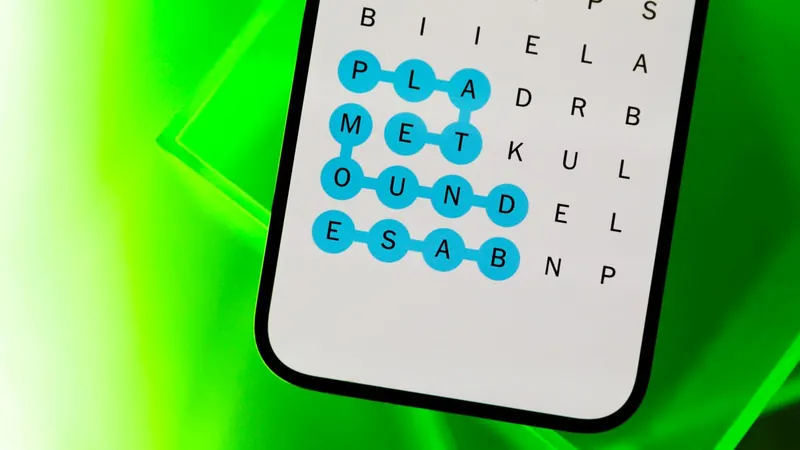
Shocking Study Reveals How Maternal Stress Can Permanently Impact Baby's Health!
2025-01-29
Author: Jia
A groundbreaking study published in the journal *European Neuropsychopharmacology* has uncovered alarming evidence that maternal stress during pregnancy may leave lasting epigenetic marks on the placenta, affecting the development of the fetus from its earliest stages. This research highlights the crucial importance of emotional well-being for mothers during pregnancy—not just for their own health, but for the future health of their babies as well.
Key Researchers
The study, spearheaded by Lourdes Fañanás, a professor at the University of Barcelona’s Faculty of Biology and the Institute of Biomedicine (IBUB), along with renowned researcher Elisabeth Binder from the Max Planck Institute of Psychiatry in Munich, showcases collaborative efforts from multiple experts in the field, emphasizing the complexity of this relationship.
Role of the Placenta
The placenta, a vital organ during pregnancy, provides essential nutrients and oxygen to the developing fetus while also acting as a mediator that responds to maternal stressors. However, the exact mechanisms through which maternal stress impacts placental function and, in turn, fetal development have largely remained a mystery—until now.
Research Findings
Researchers have found that maternal stress may leave epigenetic imprints on specific placental genes linked to cortisol regulation. While these changes do not alter the actual genetic code, they significantly modify how these genes function. Key genes identified in this study, including HSD11B2, NR3C1, and FKBP5, are crucial for the body's stress response and fetal health.
Pilot Study Overview
In a pilot study involving 45 healthy first-time mothers, researchers meticulously examined cortisol levels and depressive symptoms throughout pregnancy. After delivering their babies, the researchers analyzed the placentas and assessed the neurodevelopment of the infants at seven weeks using a specialized testing method known as Brazelton's NBAS.
Results and Implications
The results were eye-opening. High levels of stress during early pregnancy were linked to epigenetic changes in the placental genes mentioned earlier, suggesting these alterations could have profound implications for fetal health and development. Águeda Castro, the first author and CIBERSAM researcher, states, "This study reinforces the importance of nurturing the mental health of mothers from the start of pregnancy since stress could imprint biologically on the baby's development through epigenetic pathways we're only beginning to explore."
Future Directions
The implications of this study extend beyond mere academic interest; it paves the way for potential interventions aimed at supporting expectant mothers facing vulnerabilities. By prioritizing mental health care and stress management techniques during pregnancy, we could mitigate these biological consequences and promote healthier outcomes for future generations.
Call to Action
As the conversation around maternal mental health continues to evolve, this pivotal research illustrates a critical link between maternal stress and fetal development, urging caregivers, family, and healthcare professionals to create supportive environments for pregnant women. This study has notably been recognized as the best scientific publication of November 2024 by IBUB, signifying its impact and innovative approach to the realms of prenatal and mental health.
Are we ready to change how we support mothers-to-be? The future health of our children may depend on it!


 Brasil (PT)
Brasil (PT)
 Canada (EN)
Canada (EN)
 Chile (ES)
Chile (ES)
 Česko (CS)
Česko (CS)
 대한민국 (KO)
대한민국 (KO)
 España (ES)
España (ES)
 France (FR)
France (FR)
 Hong Kong (EN)
Hong Kong (EN)
 Italia (IT)
Italia (IT)
 日本 (JA)
日本 (JA)
 Magyarország (HU)
Magyarország (HU)
 Norge (NO)
Norge (NO)
 Polska (PL)
Polska (PL)
 Schweiz (DE)
Schweiz (DE)
 Singapore (EN)
Singapore (EN)
 Sverige (SV)
Sverige (SV)
 Suomi (FI)
Suomi (FI)
 Türkiye (TR)
Türkiye (TR)